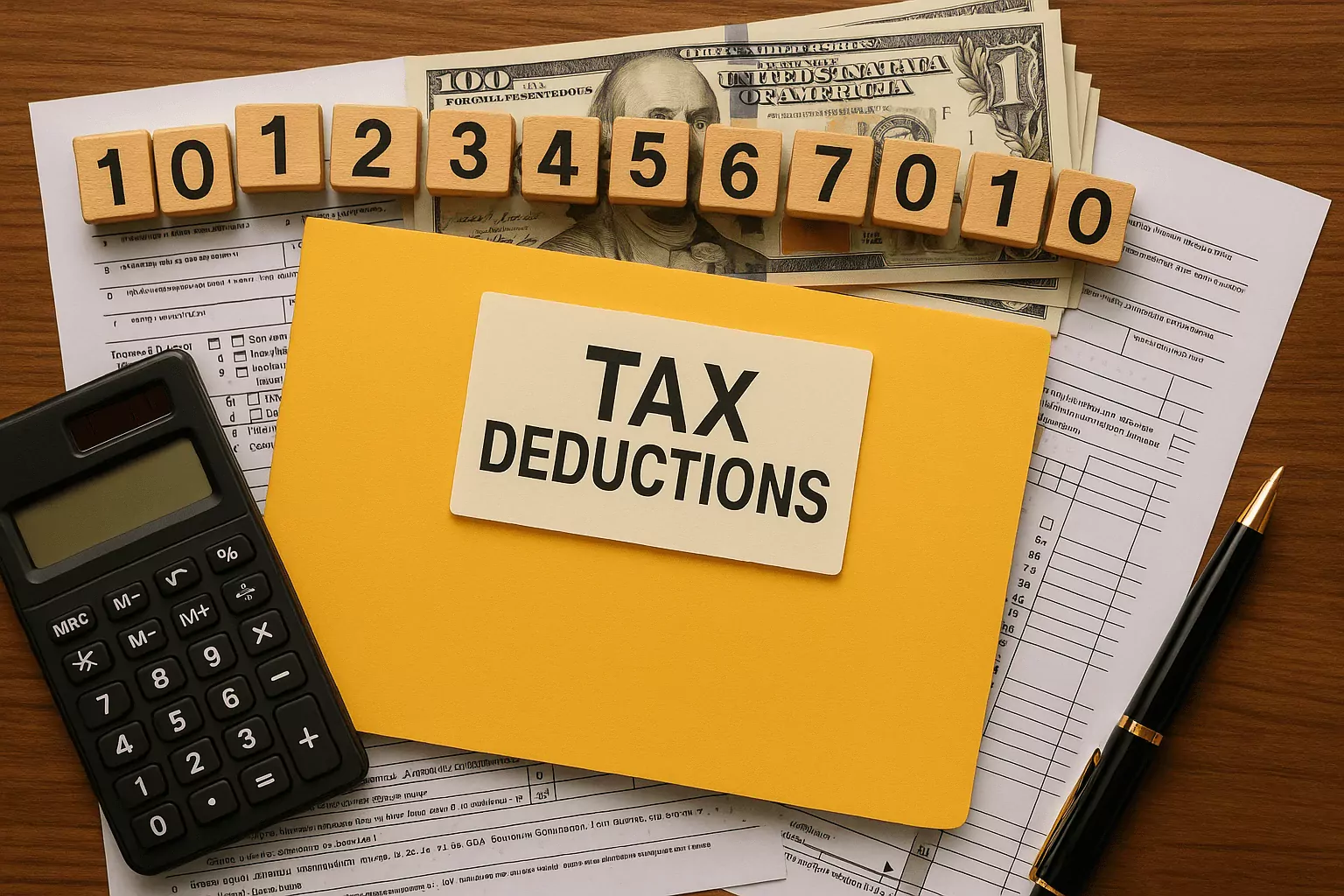Top 5 Tax Deductions You Shouldn't Miss This Year
Maximize Your Tax Savings: Essential Deductions for Individuals and Small Business Owners to Boost Refunds

Introduction
As the tax season approaches, many taxpayers find themselves searching for ways to maximize their savings. One of the most effective strategies is to take advantage of available tax deductions. Often overlooked, these deductions can significantly reduce your taxable income, allowing you to keep more money in your pocket. In this guide, we will explore the top 10 tax deductions you shouldn't miss this year, helping you navigate the complexities of tax planning. Whether you are an individual taxpayer or a business owner, understanding these deductions can lead to substantial tax planning benefits. Let's dive into the world of tax deductions and discover how you can optimize your financial situation.
Main Content
1. Home Mortgage Interest
Homeowners can claim deductions on the interest paid on their mortgage, which can lead to significant tax savings. This deduction applies to loans used to buy, build, or improve your primary residence. For example, if you have a mortgage of $300,000 at a 4% interest rate, you could deduct over $12,000 in interest during the first year. This can greatly impact your overall tax liability, especially for those in higher tax brackets. It's essential to keep accurate records of your mortgage interest payments to ensure you receive this benefit.
Additionally, if you have a second home, you may also qualify for similar deductions. Make sure to evaluate the rules surrounding the use and rental of your secondary property to maximize your tax write-offs. Consulting with a tax professional can provide clarity on how these deductions apply to your specific situation.
2. Medical Expenses
Medical expenses can add up quickly, but many taxpayers are unaware that they can deduct a portion of these costs. To qualify, your total medical expenses must exceed 7.5% of your adjusted gross income (AGI). Eligible expenses include doctor visits, hospital stays, prescriptions, and even certain long-term care costs. For instance, if your AGI is $50,000 and your total medical expenses are $6,000, you can deduct the amount that exceeds $3,750, which is $2,250.
Keep in mind that not all medical expenses qualify for this deduction. Make sure to maintain thorough documentation and receipts to support your claims. By leveraging this often-overlooked deduction, you can significantly enhance your overall tax benefits.
3. Charitable Contributions
Donating to qualified charitable organizations not only helps those in need but also provides valuable tax deductions. You can deduct cash contributions, as well as the fair market value of donated goods. For example, donating a vehicle or household items can lead to significant write-offs on your tax return. Ensure that you obtain a receipt for your donations, as this will serve as proof for your records.
Additionally, if you volunteer your time, keep in mind that while you cannot deduct the value of your time, you can deduct certain expenses incurred while volunteering, such as mileage and supplies. Understanding the nuances of charitable deductions can maximize your tax savings while supporting causes you care about.
4. Education Expenses
Taxpayers pursuing education may qualify for various deductions and credits that can alleviate the financial burden of tuition and related costs. The American Opportunity Credit and Lifetime Learning Credit are two popular options. The American Opportunity Credit allows you to claim up to $2,500 per eligible student for the first four years of higher education. On the other hand, the Lifetime Learning Credit offers up to $2,000 per tax return for any post-secondary education.
Moreover, if you have student loans, the interest you pay may also be deductible, providing additional tax benefits. It's crucial to review the eligibility requirements and ensure you are taking advantage of all available options, as education expenses can add up quickly.
5. Business Expenses for Self-Employed Individuals
Self-employed individuals have the opportunity to deduct a wide range of business expenses, which can significantly reduce their taxable income. Common deductions include office supplies, travel expenses, and even a portion of your home if you use it for business purposes. For instance, if you run a home office, you can deduct expenses related to that space, such as utilities and internet costs.
Additionally, keeping detailed records of your expenses throughout the year can make it easier to claim these deductions. By understanding which expenses qualify as tax write-offs, self-employed individuals can effectively lower their tax liabilities and enhance their overall financial position.
FAQs
What are tax deductions?
Tax deductions are expenses that taxpayers can subtract from their taxable income to reduce their overall tax liability. By lowering the amount of income that is subject to taxation, deductions can lead to significant savings. Common examples of income tax deductions include mortgage interest, medical expenses, and charitable contributions. Understanding which deductions you qualify for is essential to maximizing your tax savings each year.
How do tax deductions differ from tax credits?
While both tax deductions and tax credits can reduce your tax liability, they function differently. Tax deductions lower your taxable income, whereas tax credits directly reduce the amount of tax you owe. For example, a $1,000 tax deduction may lower your taxable income by that amount, while a $1,000 tax credit reduces your tax bill by $1,000. Understanding the difference can help you strategize your tax planning effectively.
Can I claim tax deductions for previous years?
In general, you cannot claim deductions for previous tax years unless you amend your tax return for that year. The IRS allows you to amend your tax return within three years of the original filing date to claim additional deductions. This means that if you missed a deduction in a prior year, you can potentially receive a refund by filing an amended return. Always consult with a tax professional to ensure you follow the proper procedures.
Conclusion
In summary, understanding and utilizing the top tax deductions available this year can significantly impact your financial health. From home mortgage interest to business expenses for self-employed individuals, there are numerous opportunities to lower your taxable income. As you prepare for tax season, consider consulting with a tax professional to ensure you maximize your tax benefits and avoid missing out on valuable deductions. For personalized assistance with your tax planning, contact Premier Tax and Business Services at 314-669-7300 or visit us at www.premiertbs.com. Take control of your finances today and ensure you keep more of your hard-earned money!

